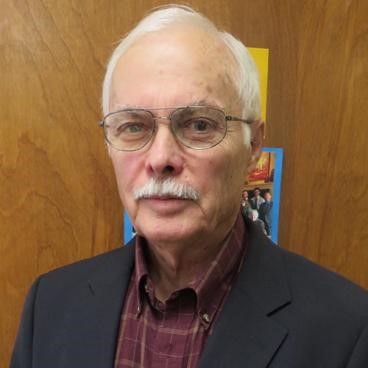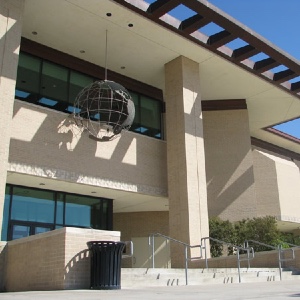Asia's Involvement in U.S., Global Economy Featured at IBC Bank & Commerce Bank Keynote Speaker Series

The consequences that Asia's continuous rise in the global economy will have on the U.S. and the world will be the focus of the next Texas A&M International University (TAMIU) IBC Bank and Commerce Bank 2023-2024 Keynote Speaker Series.
Dr. Marcus Noland, executive vice president and director of studies for the Peterson Institute for International Economics, will present his lecture titled "Asia in the Global Economy: Implications for the United States and the World" Wednesday, Oct. 11 at 6 p.m. in Student Center Ballroom. Doors open at 5:30 p.m.
The event is free and open to the public. A livestream of the event is also available at go.tamiu.edu/noland.
Asia has outperformed the rest of the world for a sustained period and accounts for one-quarter of world output and international trade and holds half of the world's official reserves. It also constitutes one-third of U.S. trade and more than one-fifth of U.S. outbound investments.
About half of the U.S. trade deficit is with Asia, a quarter with China. However, that outperformance has been built on historically unique factors, good demographics, and competent policy that cannot be extrapolated into the future.
Dr. Noland maintains that the region wants the U.S. in, but domestic politics limit American options. Global institutions are failing, and regionalism is one solution, but one that may exacerbate U.S.-China rivalry. Thus, concerns about the U.S. and China cast a shadow over the region as a whole.
Noland's research addresses a wide range of topics at the interstice of economics, political science and international relations. His areas of geographical knowledge and interest include Asia and Africa, where he has lived and worked, and the Middle East.
He has also written extensively on the economies of Japan, Korea and China, and is unique among American economists in having devoted serious scholarly effort to the problems of North Korea and the prospects for Korean unification.
He won the 2000-2001 Ohira Memorial Award for his book, "Avoiding the Apocalypse: The Future of the Two Koreas." His most recent book, "Hard Target: Sanctions, Inducements, and the Case of North Korea" (Stanford University Press, 2017) was co-authored with Stephan Haggard.
In addition to these books, he has written various scholarly articles on international economics, U.S. trade policy, and the economies of the Asia-Pacific region.
For more information, contact Jessica M. Cavazos, program specialist, Center for the Study of Western Hemispheric Trade, at 956.326.2821, email jessicam.cavazos@tamiu.edu or visit offices in Western Hemispheric Trade Center, room 221.
Additional information is also available at facebook.com/tamiucswht University information can also be found at tamiu.edu and on TAMIU's social media channels on Facebook, Instagram, LinkedIn, Twitter and YouTube.



